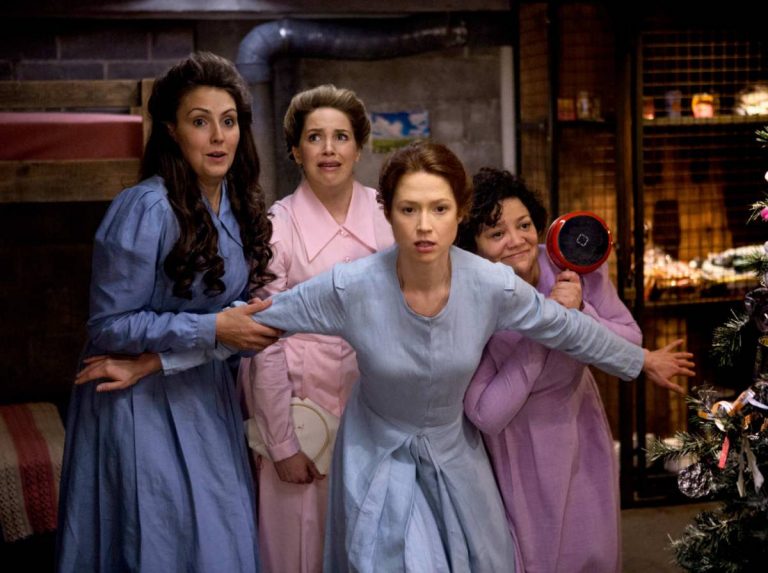Almost everyone who’s a fan of sitcoms, television, or just generally binge-watching things on Netflix (so everybody, right?) knows that Unbreakable Kimmy Schmidt is a hilarious, refreshing, and promising new comedy. That has been well established by the many reviews both online and in print that we’ve seen in recent months. What has also been very well established is the obvious feminist message the show has, which is quite eloquently put in the meme-like opening credits: “females are strong as hell”.
What is very intriguing in analysing Unbreakable Kimmy Schmidt is how the show, as a comedy, deals with themes of sexual violence.
The premise of the show, as most of you will already know, is that Kimmy Schmidt (played by Ellie Kemper of The Office), along with a few other women, was abducted by a pastor who led an apocalyptic cult, and convinced them that the world has ended. The show revolves around the titular character attempting to find her feet in New York City, moving into a tiny box room in the apartment of aspiring performer Titus Andromedon (Tituss Burgess), with eccentric land lady Lillian (Carol Kane). One could be forgiven for forgetting that this show is essentially about how a girl who deals with being kept away from civilisation for years on end and raped, repeatedly. She has obvious struggles interacting with people and, early in the season, building romantic relationships.
The first attempt is an unhealthy relationship with a senile old man who she mainly uses to vent everything she can’t say to anybody else, knowing he won’t remember it five minutes later. Then there is her brief romantic involvement with Charles (Andy Ridings) whom she professes to love after just a few kisses. Though, this pattern eventually changes when Kimmy meets Dong who, despite being a poorly written one-dimensional character, is a clear milestone in her recovery.
However, the shows dealing with Kimmy’s trauma does go further than her struggles romantically. She seems to experience what can only be described as PTSD like symptoms, in a similar fashion to what we hear from survivors of sexual violence, only with some absurd and surrealist comic twists. According to conversations she has with Titus, we find that she has choked him while they were both sleeping, and has a violently fearful reaction to both Velcro and being snuck up on.
But one of the starkest examples of this is the scene between the Jaqueline Voorhes (Jane Krakowski) and Kimmy, when they try their hand at living an ‘outside in’ philosophy: looking good on the outside until you feel good on the inside, which cumulates in a scene with an overly nipped and tucked plastic surgeon. Kimmy tells Jaqueline that when she was in the bunker, she used to jump up and down a say “I’m not really here” over and over to make herself feel better.
Although comedy gold, this scene is analogous of the mental gymnastics that survivors of trauma of any kind sometimes have to do just in order to get through the experience. Kimmy spent her time in captivity trying to bury her head in the sand and pretend as though everything was fine, which may have massively helped her cope at that point in her life, but which she is quick to learn does not work in the real world. These scenes are again, handled with great tact, and instead of coming across as dark scenes, or in any way offensive to survivors of sexual violence, they’re actually some of the funnier moments of the show.
The way the show manages to make Kimmy’s struggle comic without being reductive is what is so interesting about the series. Kimmy’s trauma is not dismissed with comedy, there is no making light of what happened to her, in fact there is only one joke ever directly mentioning any actual rape, and even that is used more as a tool to make sure the audience is aware of exactly what happened to her (“Yes, there was weird sex stuff in the bunker.”). This is what makes Unbreakable Kimmy Schmidt not only a show which sets a new standard in comedy, but also a new standard for the way themes of sexual violence are handled on the small screen.
Some of the coverage you find on Cultured Vultures contains affiliate links, which provide us with small commissions based on purchases made from visiting our site.

